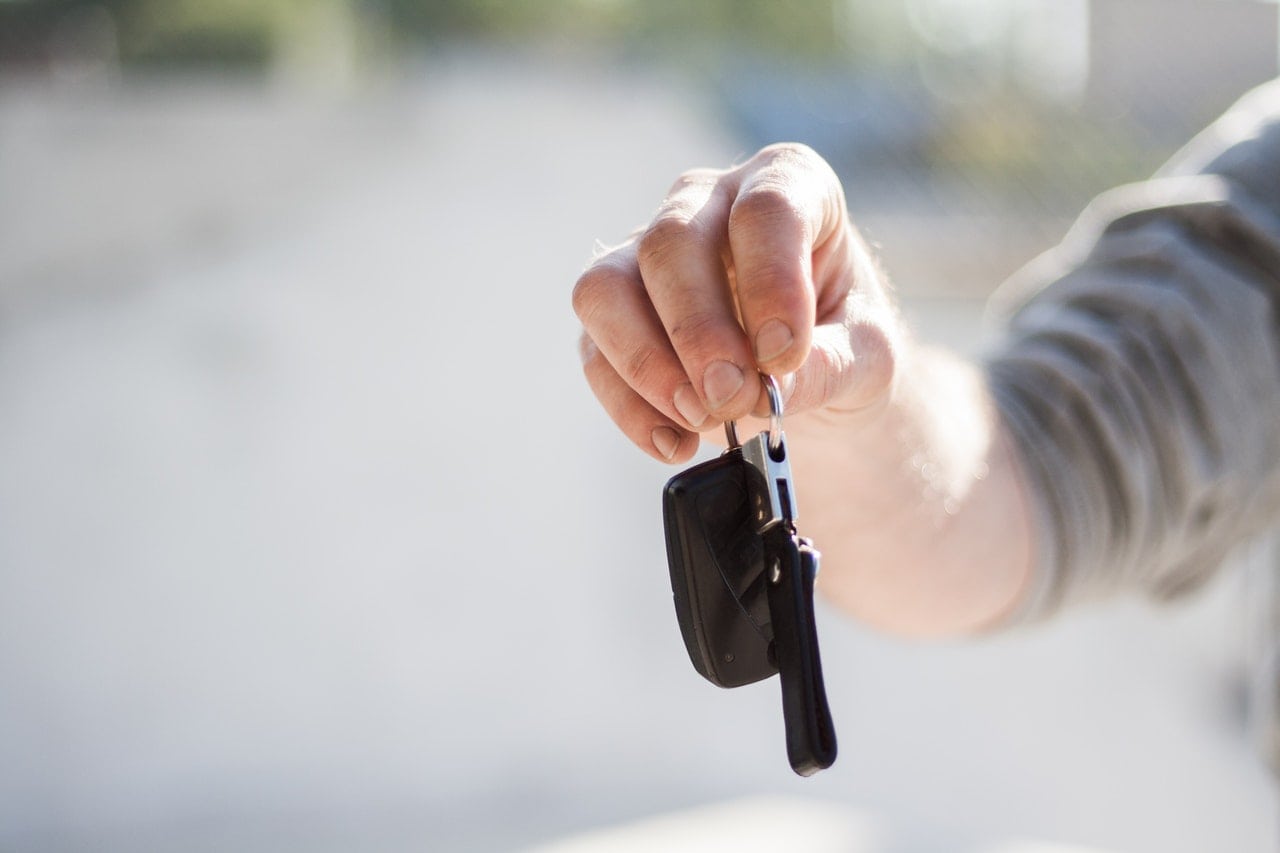So, you want to buy a car? Sure, living in New York City means it's easy to get around on the subway or on foot. But when you’re ready to venture further afield it might be time for your own set of wheels. So whether you're thinking new or used, dealer or private sale here’s how to buy a car in New York:
First, let’s assume you’ve done your research on the pros and cons of buying a car vs renting vs leasing. Secondly, if you live outside of New York state (shout out to our Aussie neighbors in NJ!), the basics of how to purchase a car will be the same. However, you’ll need to check with your state DMV for specifics.
1. Driver’s license: Do I need one to buy a car?
If you live in New York, technically, no. You can buy a vehicle, and even register it without needing a license.
However, NY law requires you to insure your vehicle, and for that you’ll need a valid state license (with a few exceptions). Plus, you probably won’t be able to test drive a vehicle without one and there are a whole range of insurance issues if you have moved and haven't picked up a local state license for later, so make sure you do.
You can find out how to get your driver's license in New York here.

2. What kind of car to buy: Sensible sedan? Luxury SUV?
Firstly, make a list of your non-negotiables and wish-list items. For instance, you’ll want to consider: budget, size, new or used, road trips vs city driving, mileage, fuel economy, features (hello heated seats…where have you been all my life?), as well as your personal style!
You’ll need to factor in the cost of the car, insurance, registration, annual inspections, maintenance, gas, parking/garaging, and possibly parking fines!
Finally, as an Aussie living in New York, a few extra things to consider are:
- If you need to finance the car, you’ll need a US credit history and a decent credit score.
- If you’ll be using on-street parking, know that the body of your car will be at the mercy of your parallel parking skills–and those of every other New Yorkers competing for tightly packed street parking spots.
- How long you expect to live in New York.
3. What are my options for financing a vehicle?
Your options for getting finance are from a dealer or a direct lender. Unless of course you’ve saved up loads of cash. In which case, way to go!
Even if you're planning to finance your vehicle through a dealer, it’s still worth getting a pre-approval from a direct lender. For one thing, it will inform your budget and it's also leverage for when you’re negotiating the sale. The other thing to know is that some dealers will work with direct lenders on your behalf.
To qualify for a car loan you’ll need a US credit history. The higher your credit score, the more favorable your loan rates and offer will be. Find out how to check your credit score here.
Buying a car if you've got no/poor credit history:
If you’re fairly new in town and your US credit score is zero, it’s not impossible to get financing, but there are extra hoops to jump through, in other words, a ton more paperwork.
In addition, the terms and interest rates probably won’t be as competitive as someone with a solid credit score (find out more about credit scores here and what a “solid” one looks like). So one option is to build your credit score first before you purchase a car (or saving up and/or buying a lower-cost vehicle).
Finally, you can also research lending services aimed at expats and people with poor or no credit. For example:
- Stilt, offers personal loans for visa holders. They also suggest approaching community banks, credit unions, and brokers for a personal loan to buy a car if you've got no credit history.
- CarsDirect works with a lender network to help customers with bad credit or no credit history get a car loan.

4. Where to buy a car: Dealership or private seller?
Buying a car from a private seller
When you buy from a private seller, you might get a better deal, and avoid sales pressure. But the onus is completely on you to assess the road worthiness of the vehicle.
For instance, you'll need to arrange a mechanical inspection. Private sellers aren’t bound by any regulations so use your judgment. Buying from a mate who’s returning to Australia might be a reasonable opportunity compared with, say, buying from a random seller on a buy-sell group.
Buying a car from a dealership
All dealers in NY must be registered with DMV and comply with state and federal laws that protect you, the buyer. For instance, the NY Lemon Law provides legal recourse if you buy a car that turns out to be, well, a lemon!.
In addition, new vehicles are protected by the manufacturer's warranty. Whereas, if you purchase a used vehicle, the dealer must provide you a roadworthiness certificate. Finally, dealers are usually able to take care of the registration paperwork which is one less thing for you to worry about.
The NY DMV has a helpful guide for choosing between dealer and private seller. Read it here.
When the thought of going to a car yard makes you anxious
If you live for negotiating a deal, then an on-site dealership is for you. But if you're uncomfortable with the possibility of sales pressure, there's another option to get the consumer protection of buying from a dealer. And that's by buying your vehicle from an online dealer.
Examples include Cavana, Carmax, Cars.com, Nowcar, and Shift. An online dealer gives you the convenience of comparing, researching, and closing the deal, from the comfort of your home, with virtual access to the dealership staff.

5. What to research and how to seal the deal
So you’ve found your dream car (or at least narrowed down your options!). However, before you start planning your weekend getaway:
Do your due diligence
- The DMV has a detailed checklist of what to look for. NYC Consumer Affairs offers tips on buying a used car.
- Get a vehicle history report, to assess accident data, service history, odometer rollback, etc.
- Take a test drive. Online dealers have different policies, with some offering a return period, eg 7 days, instead of a test drive.
- A word on tinting: NY law does not allow a windshield or front side windows that are “dark”. Read here for details on exactly how this is defined. Although you’ll see many vehicles on the road that contravene these laws, it's important to know that drivers can and do get pulled over for it.
Negotiate price & finance
If you’re financing the car, most dealers offer finance and some will work directly with your lender. If you’ve got an independent pre-approval however, use it to compare and leverage a more favorable loan with the dealer.
Seller documents
Before you sign anything, check the seller has provided the following and they’re correct:
- Proof of vehicle ownership (new car) or transfer documents (used car).
- Disclosure of all costs: vehicle, taxes, fees. And importantly, look out for add-ons that you didn’t agree to, e.g. extended warranty, after-care.
- Registration documents: You can also find a checklist of the seller documents you need for registration here. Otherwise, jump ahead to the registration section below for more details. Generally, dealers will do the registration paperwork for you, but you should check that everything is in order.
6. Auto insurance: what you need to know
After you purchase a vehicle but before you drive it home (or take delivery), you’ll need to insure it. Auto liability insurance, through a licensed insurer, is compulsory for ALL vehicles registered in NY state. Your premium will depend on factors like your age, driving record, borough, zip code, etc.
The NY Dept of Financial Services is a good starting point to learn more and select a policy. Check the tab “Shopping for Auto Insurance tab”. They also provide a list of auto insurers.
7. How to register your vehicle with DMV
If you live in NY, you’ll need to register and title your vehicle with the DMV within 180 days of the effective insurance date.
If you bought the car through a licensed dealer, in most cases they’re able to register, title, and issue plates. So they'll include this service in the drive-away cost. Otherwise, you’ll need to register the car yourself. During Covid, NYC residents can do this online.
Read the full details on how to register your car with the DMV here, including what documents you need to submit. Or read on for a quick overview…
Step 1: Gather documents
As a minimum you’ll need:
- Registration and title application form
- Statement of transaction
- Proof of ID. If more than one person is registering or titling the vehicle, each person must provide proof of identity.
- BIll of sale and proof of sales tax
- Title (aka pink slip or pinkie–for all you Grease fans) or proof of ownership eg manufacturer’s certificate for a new car
- NY insurance card
Step 2: Submit documents and payment to DMV
You can pay by credit card and the fees include sales tax, plate or transfer fee, title certificate fee, vehicle use tax, registration fee (for 1 or 2 years). You can estimate the fees here.
Step 3: Receive registration documents
In 1-2 weeks by mail you’ll receive:
- Plates (unless you’ve transferred registration)
- Registration sticker (to place on your windscreen)
- Registration documents (to keep in your vehicle along with your NY vehicle insurance card)
- 10-day inspection extension sticker
Step 4: Get a vehicle inspection
You’ll need a vehicle inspection at a DMV-licensed inspection station upon purchase (unless the dealer has already done this). You'll then need a new one every 12 months and display a valid inspection sticker on your windscreen. Otherwise, you can be fined–as some drivers discover after returning to their car in a public parking lot. You can find more about getting an inspection here.
Now that you've read the basics on how register your car, you should take a step-by-step walkthrough of the process here to get the specifics, e.g. forms you need to submit, because the details vary depending on bunch of factors, such as new car vs used car.

8. What's next after buying a car?
Don't forget, once you buy a vehicle of your own, there's registration, inspections, insurance, and more, to renew (“AMJOSH4LYF” plates anyone?). You can take care of most vehicle related transactions at the DMV.
You're ready to roll!
Congratulations! Now you know how to purchase a car in New York so you can legally hit the road. All you need to do now is fill up the gas tank, put together a killer playlist, and you're all set. And be sure to honk if you see a fellow Aussie in the US!













With the high cost of expenses these days autos rent apts eating relations love yes ways are there to cut costs depending how done or your amigos dates tho average volks are well not with reality simple thing to cut down credit cards are worst driving mucho when no need to or at bad times I was never perfect most volks now are not in the real world doing things best way to cut cost no need to wine use alcohol drugs when dining or costly dating nice places yes but simple even who wears what I know from 33years dating share and care or my business done properly not what is done but how gracias all have a nice day if possible
In response to Valerie above VW/Audi WILL lease even if u are in a temp visa which us why many aussies opt for this brand. Insurance is more the trick w/o a local licence but atill do-able.
What isnt mentioned is the high percentage of leases vs buying or (the far rarer) car loan.
When we last ran the numbers of ownership depreciation vs a 3y free servicing w/lease… it didnt make sense to buy. Plus its fun to hv the latest greatest every 3 years. And finally, leasing is CHEAP CHEAP. If u have excellent credit you’ll get a small european SUV audi q5 etc) from 300/month +…. reasonable credit cost u 400/month up.
Wow! I had no idea it was so cheap, this is great!
Also be aware that if you move interstate, or pay off your financed car and get the title, make sure you take the title into the DMV in the new state so they can record it against your rego. If you don’t and you somehow lose the title, you have a lot of hoops to jump through to get a copy so you can sell it. A LOT…
Also re leases from Valerie’s post, I found in NJ that cost of insurance was quite a bit more expensive on a lease than for a financed car. That helped me decide to buy vs lease.
Holy moly, great to know, thank you Todd!
This article didn’t mention anything about auto leases. This is a very common way cars are “sold” in the US, and is not the same as financing. The structure is stated in ads as “$XYZ/month, $ABC due at signing” for 3 years and 30,000 miles etc.
If you’re on an E3 visa, most likely you cannot lease a car. This is because if you are on a visa, dealerships are going to want that the visa expiry is past the date of the end of the lease. Most leases being 3 years in length, and E3 visas being 2 years….well, it is a situation where most dealerships will say “no thanks”. This is a situation specific to cars though (as opposed to mortgages) as cars move and are known to lose a significant % of its value. If you are considering a lease, talk to the dealership up front to see if they would give you one due to the visa issue, otherwise it could be a huge waste of your time.
It should also be noted that there are some exceptions to this 3 year thing – for example, Volvo has a “subscription” program that is more flexible. But in general, it’s less of an issue to buy used and/or pay in full since a car as an asset cannot really secure the value of a loan.
Thanks, Valerie, so much for the extra information!
One thing to clarify, because it is different from Australia. Cars in the US are titled (a bit like houses). Registration isn’t proof of ownership. A dealer will deal with all of this if you go there, but if the sale is private, you will need the title in hand to prove ownership. If the seller has a lien on the vehicle the lien holder will physically have the title and won’t release it until the lien is paid. It isn’t difficult, but it was weird to me when I first arrived here!
As mentioned in the article if it is a new car its title will be the “manufacturers Certificate of Origin” if the car is older than 1973 it may not have (or need) a title
Great note, Justin! Thank you!